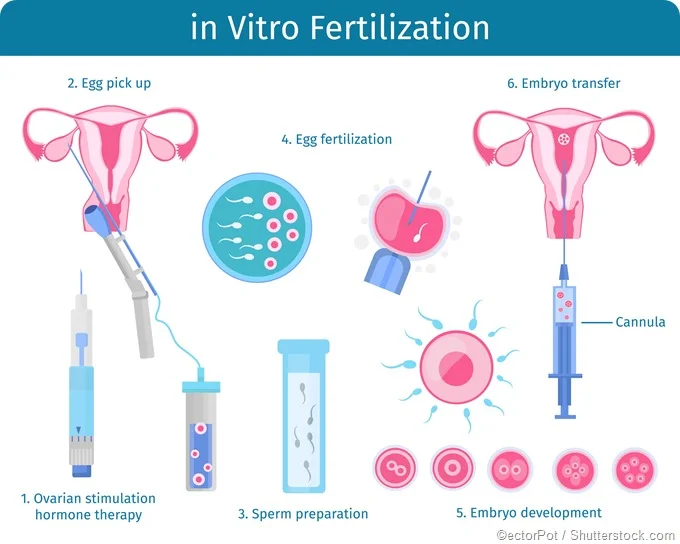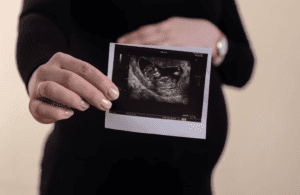Table of Contents
In our increasingly busy lives, getting the recommended eight to nine hours of sleep is a challenge that many people face.
Interestingly, sleep issues are a common trend in couples who are struggling with fertility, and sleep deprivation has been linked to reduced chances of fertility because of its effect on hormonal balance in both men and women. The part of the brain that regulates the sleep and wakefulness hormones, called the hypothalamus also triggers a daily release of reproductive hormones that are, of course, foundational for healthy fertility.
Lack of Sleep in Women
Women unfortunately tend to experience sleep problems more than men according to Sleep Foundation. This is because they are on average more likely to experience anxiety, depression, and insomnia.
Lack of sleep suppresses melatonin production in women while also activating excessive HPA (hypothalamic-pituitary-adrenal) hormone production. Excessive HPA has been shown to result in early pregnancy loss and failed embryo implantation.
If dysregulated sleep is chronic, women experience the increased release of LH (the luteinizing hormone), which triggers ovulation as part of regulating the menstrual cycle. The consequential menstrual irregularity means that it takes them longer to conceive.


In Vitro Fertilization
For women trying to conceive through IVF (in vitro fertilization), sleep quality becomes even more critical. A study even found that women who were undergoing IVF and had from 7 to 8 hours of sleep every night were 25% more successful in conceiving compared to those who got less than 7 hours of sleep.
Night Shift Workers
Working through the night instead of sleeping has come to be known as the “infertility shift”. This scientific review found that this type of shift work may give rise to menstrual cycle disturbances, and even higher incidents of miscarriage.


Most studies and reviews point to the need for further research but do indeed point to a strong correlation between sleep dysregulation and infertility in women, which leads to the suggestion that women prioritize high-quality sleep to give themselves the best chance to conceive if they so wish, but also simply for robust health in general.
Lack of Sleep in Men
In men, lack of sleep has a similarly negative effect on fertility due to the same impact on the sleep-wake hormones affected in women (cortisol and melatonin). Disturbances of these key hormones in turn affect the reproductive hormones such as testosterone, LH (luteinizing hormone), and FSH (follicle stimulating hormone). The research found that dysregulated sleep reduced not only the sperm count but also the quality of sperm production. This study also found that every extra hour above 8-9 hours also reduced sperm count – demonstrating that sleeping too much or too little harmed men’s fertility as well.
There is also an interesting correlation found by The Boston University School of Public Health where the reduction in the number of hours that Americans had every night was consistent with the decreasing number of global sperm counts.
Stress at the Root of the Issue
Stress is a generalized term that includes both external factors and more internal psychological and/or emotional. All of the above factors around sleep dysregulation can be summed up to say that too little or too much sleep places a lot of stress on the human organism.
The thing about stress though, especially in the context of sleep and fertility issues, is that it often becomes a vicious cycle. Struggling to conceive is undoubtedly a challenging time, which can cause many couples to become very anxious. The anxiety and stress can prevent you from getting good sleep, which in turn makes the effects of the original stress more significant.
There is also a mechanism in which heightened stress can push your body into fight or flight mode where you prioritize your resources in irregular ways to prepare you to survive some sort of life-threatening situation, resulting in irregular periods and/or preventing ovulation.
@doctoryoun Can’t sleep? Maybe it’s because you sleep on your phone! Here’s the evidence. #sleep #insomnia #emfs #emf #mobilephone #holistichealthtips
♬ The Office – The Hyphenate
EMFs, Stress, Sleep, and Fertility
A growing amount of the population is becoming aware of the harmful effects of prolonged use of devices due to levels of EMFs (electromagnetic field radiation).
EMFs are an increasingly common contributor to the total stress load on the human body, adding to the vicious cycle of impaired sleep and stress. The electromagnetic radiation (EMR) from EMF exposure can also directly cause issues with fertility in both men and women by creating oxidative stress and DNA disruption.
Common Sources of EMF Exposure and What to Do
- WiFi Routers: Disconnecting your Wifi can greatly reduce EMF exposure; particularly helpful at night if you are aiming to optimize your sleep quality.
- Cell phones: You can opt to your phone away from you while sleeping, which will benefit your ability to sleep due to staying off your device and exposing yourself to bright lights, but also will reduce your overall load of EMFs.
- Laptops: Computers in general that use WiFi will have similar radiation outputs to cell phones.
- Apple Watches and fitness trackers: These are becoming increasingly common sources of EMF; while they may be useful for productivity and for measuring certain biomarkers, taking them off at night as often as possible can reduce overall EMF exposure.
- Airpods and other Bluetooth headphones: Wireless headphones are constantly emitting radiation by communicating with each other as well as the device that is streaming the audio.
- Microwaves – Simply choosing to use a traditional stovetop, oven, or even countertop oven will reduce your exposure to EMF.
- Metal detectors and medical devices: Opting for a pat down instead of a metal detector at events and only getting MRIs and X-rays whenever absolutely necessary will help to reduce your exposure to EMF.
- Smart home devices: Amazon Echo, Apple HomePod, and other smart home devices use Bluetooth and WiFi technology to stay connected. Turning them off whenever not in use or even just while sleeping can greatly benefit those trying to optimize their fertility.
Final Thoughts
With all this in mind, prioritizing getting quality sleep, managing stress (external and internal), as well as protecting yourself from excessive EMF exposure is a good bet to give yourself the best chance of conceiving a healthy child.
Consider implementing the products we make at Aires Tech to protect yourself as well. We are the only company that is putting our products to the test by using peer-reviewed research and EEG testing to prove the efficacy of our products.
By maintaining a consistent bedtime every night, integrating patented Lifetune technology, reducing the usage of our devices, and cultivating peace in our lives, we can greatly improve our overall health and quality of life.


Related Posts
- Sleep, Stress, and EMFs : The Key to Boosting Your Rest and Recovery
- Optimizing Sleep Quality for Men
- Sleep and EMFs : Better Sleep, Better You
- Sleep and Gaming : How EMFs Can Impact Performance
Updated February 21st, 2024







